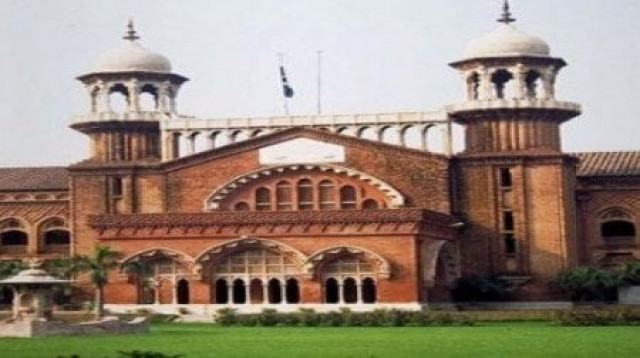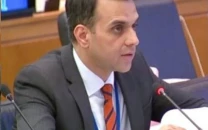LHC rescinds property sale in maintenance dispute
Court restores father’s property; safeguards minors’ interests

The Lahore High Court (LHC) has overturned an executing court's order for failing to follow due process in the auction of a property. Additionally, the LHC has disagreed with the respondent's decision to transfer the property into her name as a means to offset the maintenance owed to her for her children from her former husband.
This case stemmed from the respondent's lawsuit seeking the dissolution of her marriage, recovery of dowry items, and maintenance for her minor children (other Respondents) from the petitioner, Muhammad Waqas.
At one point, the respondent had a property of her ex-husband transferred to her name to cover the future maintenance expenses for the minors until 2032, as determined by the executing court.
“This court while exercising the parental jurisdiction is perturbed from such state of affairs that on failure of the petitioner (father) to maintain the minors,” LHC Justice Anwaar Hussain observed in his judgment.
“On the one hand, the former has been deprived of his property, which may form the inheritance of the minors in future and on the other hand, the same has not been transferred in the names of the minors, rather admittedly, sale deed in favour of respondent (mother) has been executed,” the judgment added.
The judgment emphasised that in that situation the minors were left again with no maintenance. “Hence, it is the minors who are on the losing side in both eventualities”, Justice Anwaar Hussain further wrote in the judgment.
On April 3, 2018, the suit was decreed in favour of the mother, followed by the execution proceedings.
On that the petitioner did make some payments but on February 13, 2019, the matter was consigned to record room after the mother said she did not want to proceed with the execution petition.
However, the execution proceedings were restored on May, 2019 on the respondent’s application.
Thereafter, on June 21, 2019, after issuing warrant of attachment of the property of the petitioner [father] auction schedule was drawn on July 20, 2019, while calculating the decretal amount till 2035.
Thereafter the property was auctioned. The respondent [mother] purchased that property by adjusting the amount of maintenance, which was calculated while considering the future maintenance amount for the minors till 2032.
After that, the petitioner, Muhammad Waqas, challenged the auction schedule issued by the district court. The petitioner’s appeal was dismissed and then the matter was taken to the LHC. The petitioner contended that when the execution petition was restored, no notice was issued to him.
Chaudhry Mahmood-ur-Rehman, the counsel for the petitioner contended that the execution proceedings were a nullity in the eyes of law because it was mandatory for the executing court to issue notices before putting the property of the petitioner to auction.
Moreover, the lawyer added, the court auctioneer, instead of acting as per the auction schedule chalked out by the executing court, opted for postponing the auction, which was later held on October 23, 2019 instead of September 18, 2019 as ordered by the executing court.
Chaudhry argued that the petitioner’s property was attached without adopting legal formalities and that the decretal amount till 2032 was wrongly assessed. He said what if a minor died, would the petitioner continue paying the maintenance till 2032.
The respondent’s counsel argued that the petitioner was obligated to deposit 20% of the decretal amount but he failed to do so despite direction from the executing court. Therefore, the court rightly passed the order and the sale deed was executed in favour of respondent (mother).
Justice Hussain said that there was nothing on record to substantiate that the court auctioneer sought permission of the executing court to reschedule the auction. This fact alone, he added, indicated that the auction proceedings were not carried out as per law and the schedule given the executing court.
“There is no cavil to the proposition that the petitioner, as father of the minors, is obligated to maintain the latter and the arrears of maintenance once recovered during the execution proceedings are to be used for the benefits of the minors by fulfilling necessities of life,” the judge observed.
“However, in the instant case, the future maintenance has been calculated till year 2032 and respondent (mother) has adjusted the said amount against purchase price of the property belonging to the petitioner in her own name. This leaves the minors again with no maintenance.”
Justice Hussain set aside the sale of the disputed property with direction to the petitioner to make payment of an amount of Rs1 million to the executing court within 30 days. The amount, the order said, would be adjusted against the arrears of decretal amount due till that date.





1724926799-0/Untitled-design-(7)1724926799-0-208x130.webp)













COMMENTS
Comments are moderated and generally will be posted if they are on-topic and not abusive.
For more information, please see our Comments FAQ